In front of Sydney’s iconic Opera House, thousands gathered on Sunday to stand in solidarity with the anti-government protesters in Lebanon, where protests entered their 12th day.
Putting aside their political and religious affiliations, thousands waved Lebanese flags raging against top leaders, from the Lebanese President Michel Aoun, and Prime Minister Saad al-Hariri, to Parliament Speaker Nabih Berri and Foreign Minister Gebran Bessil and others.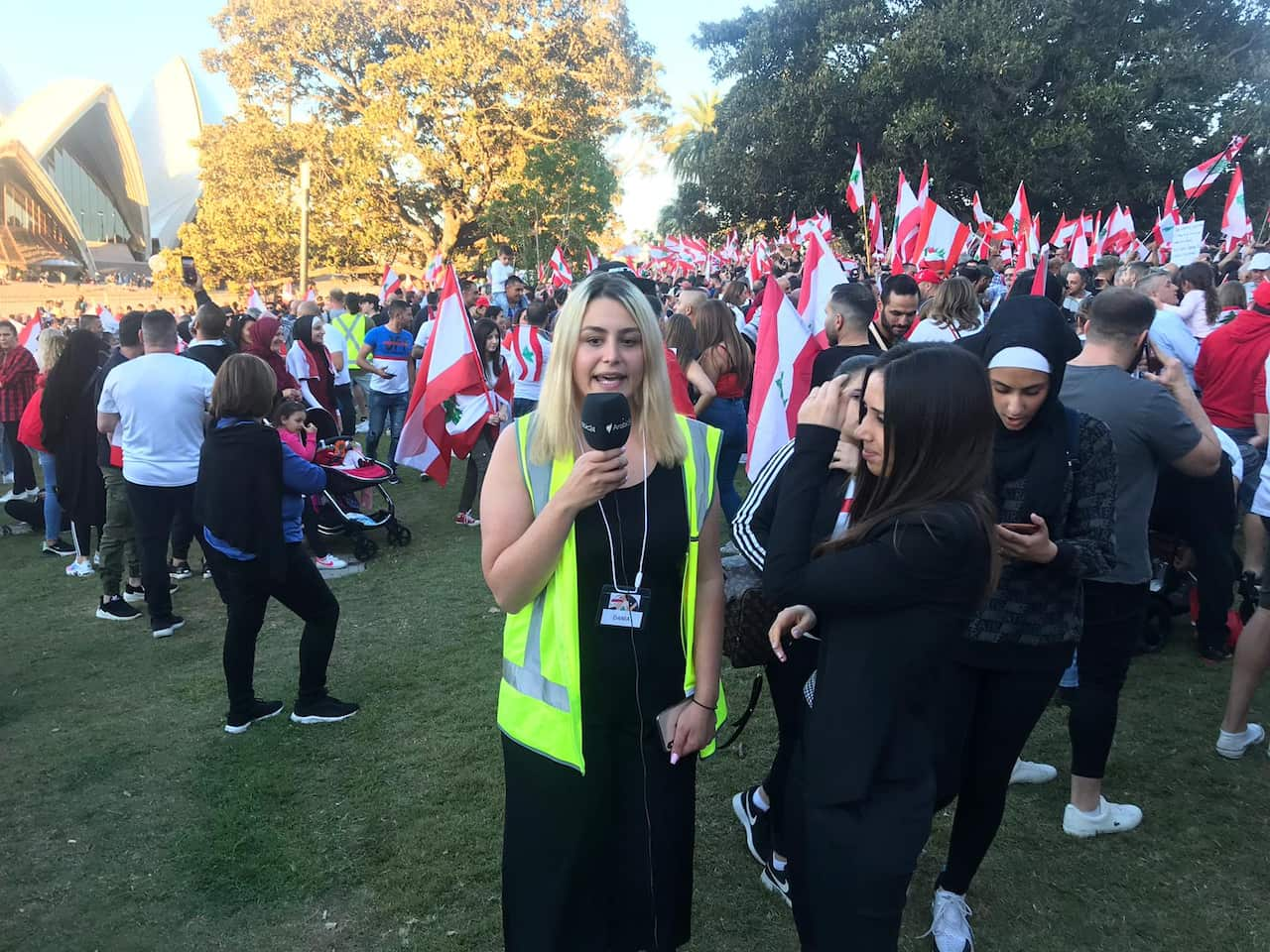 Dania Hawwat, Australian Lebanese United Movement Co-Founder, told SBS Arabic24 the protests were organised to show support with the Lebanese protestors mainly but to also “to give voice to the Lebanese community in Australia.”
Dania Hawwat, Australian Lebanese United Movement Co-Founder, told SBS Arabic24 the protests were organised to show support with the Lebanese protestors mainly but to also “to give voice to the Lebanese community in Australia.”

Dania Hawwat, Australian Lebanese United Movement Co-Founder speaks to SBS Arabic24 during solidarity stand. Source: Supplied
She added that by doing so, the movements in Australia alongside the global movements organised by the Lebanese diaspora “are helping spread awareness on the ongoing corruption within the Lebanese government.”
“This awareness and media attention will help shape the people’s voice around the world as a peaceful, hurt and righteous scream allowing international support to our cause.”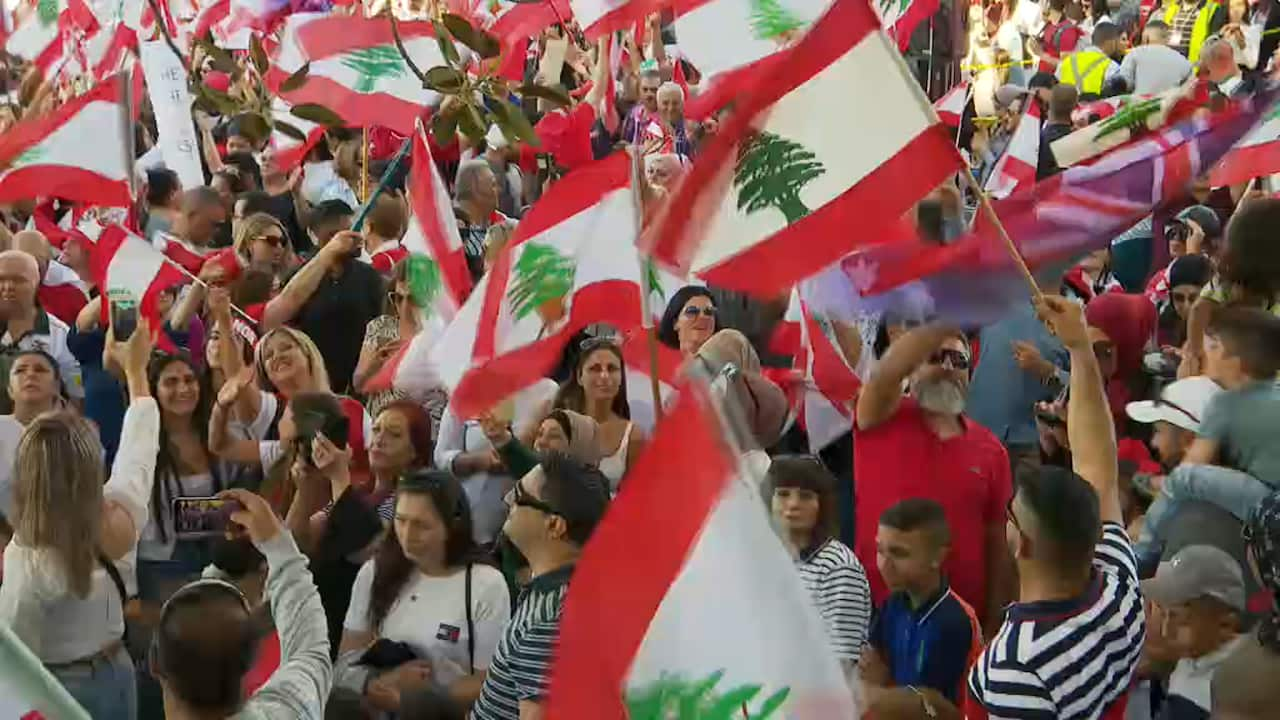

Protestors hold the Lebanese flag. Source: Supplied
Our politicians need to start working, they are not doing anything
The crowd chanted slogans that mirrored the chants back in Lebanon, “all of them, means all of them," in reference to the sectarian nature of the political system, "the people want to bring down the regime," and "revolution". 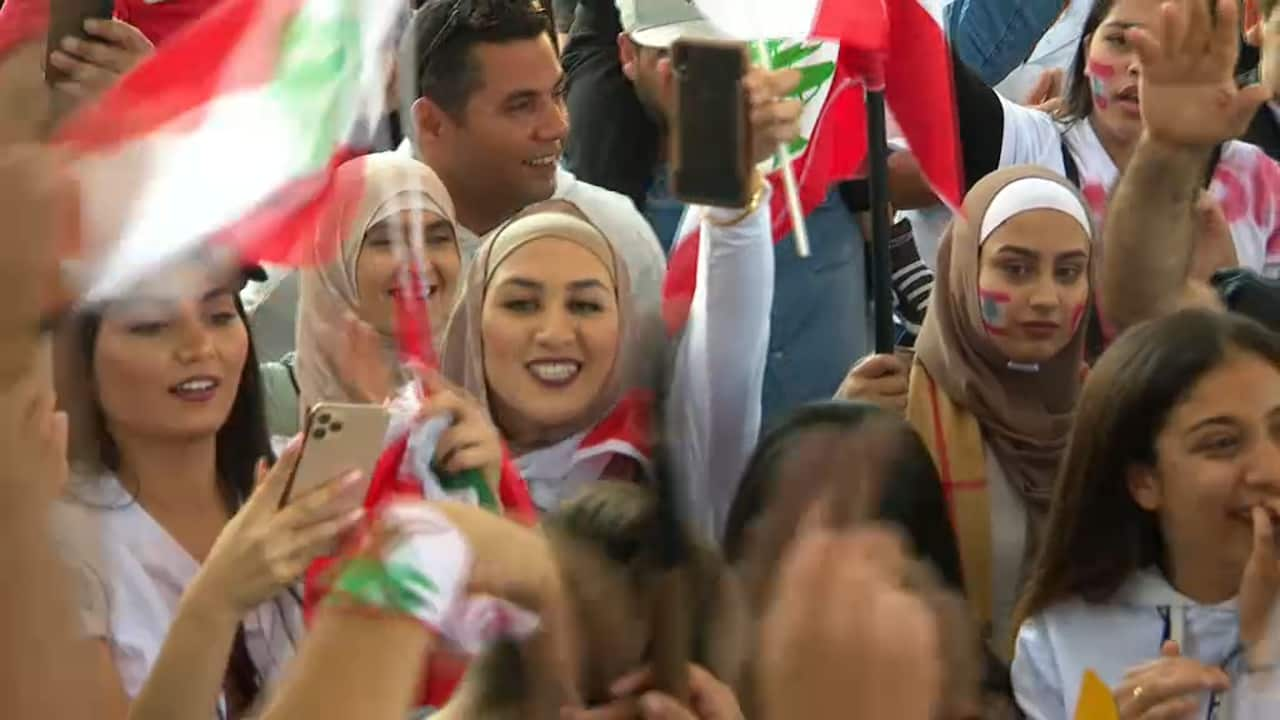 Posters of all kinds were displayed, mostly mocking the government.
Posters of all kinds were displayed, mostly mocking the government.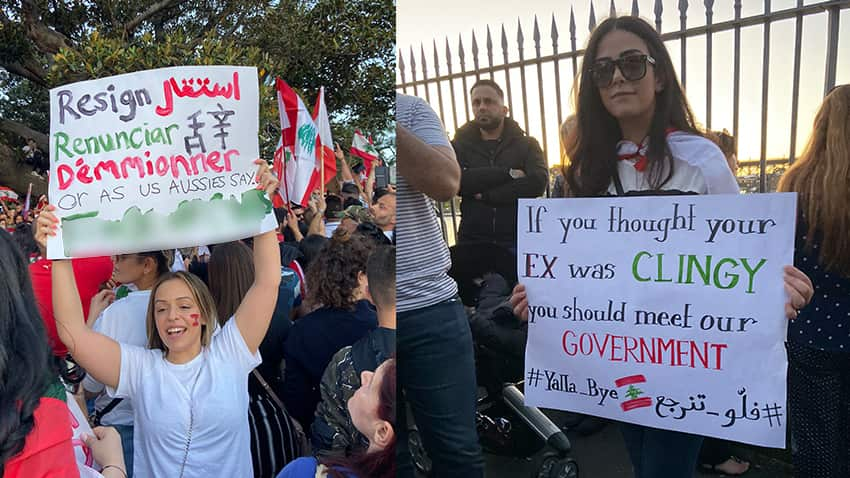 Twelve-year-old Adam who migrated to Australia two years ago was eager to voice his opinion about why he joined the protests.
Twelve-year-old Adam who migrated to Australia two years ago was eager to voice his opinion about why he joined the protests.

Source: Supplied

Protesters hold posters in Sydney. Source: Supplied
“I love my country a lot," he said. "They forced us to migrate. I can’t believe that there is a country better than mine. My country used to be the best, but not anymore.”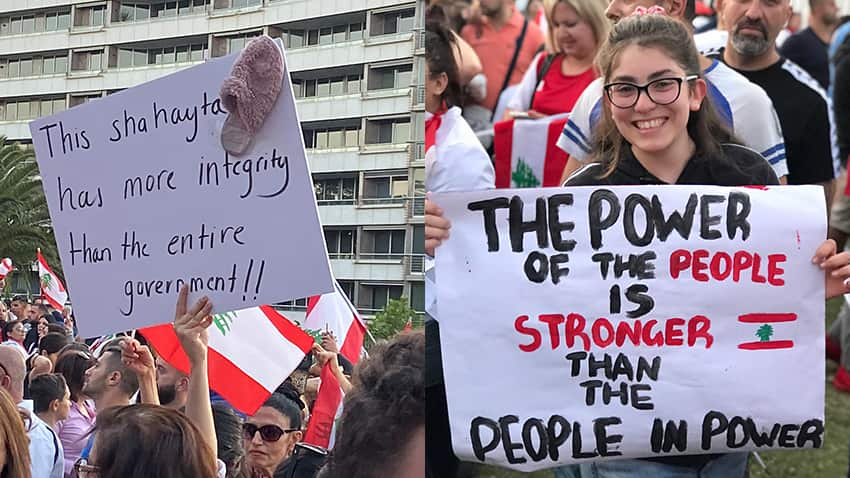 He added pointing to the Lebanese flag and inference to the politicians “They need to do something, if they don’t, the Cedar tree will disappear.”
He added pointing to the Lebanese flag and inference to the politicians “They need to do something, if they don’t, the Cedar tree will disappear.”

More posters held by protesters. Source: Supplied
“Our politicians need to start working, they are not doing anything.”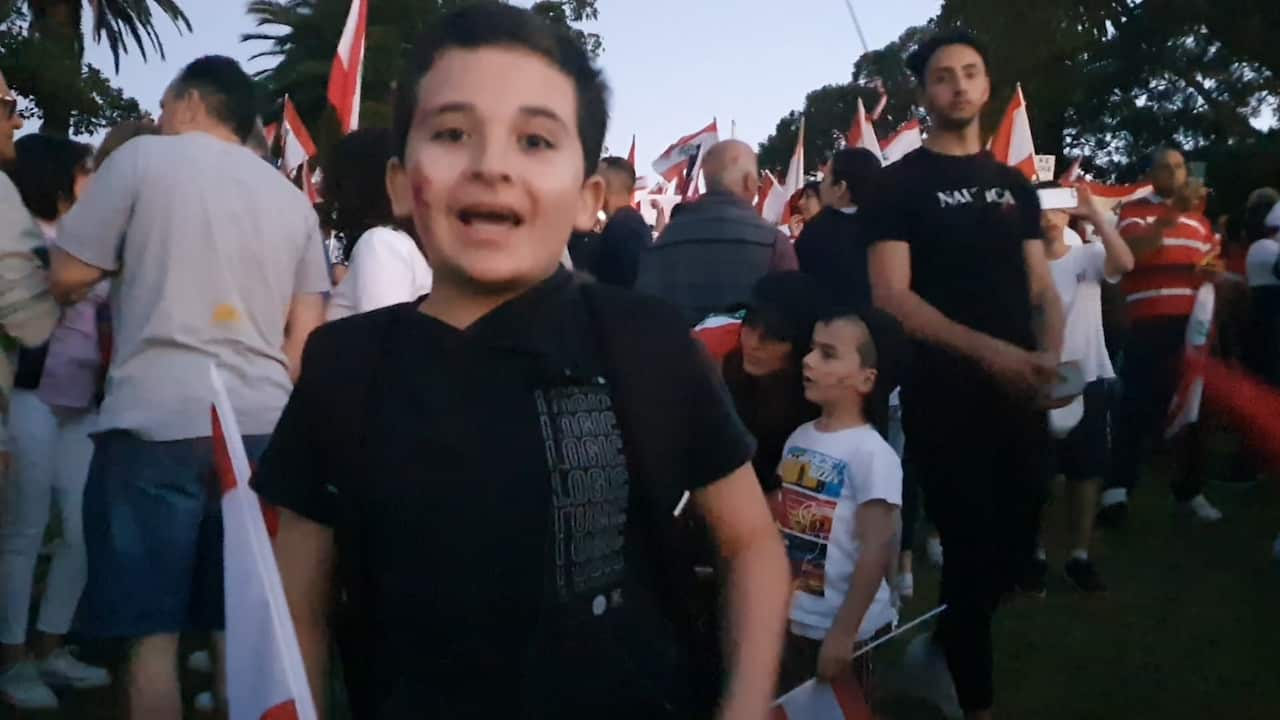 It was an opinion echoed by Joseph Habkouk (39) who said he was participating to stand in solidarity with the Lebanese people.
It was an opinion echoed by Joseph Habkouk (39) who said he was participating to stand in solidarity with the Lebanese people.

12 years old Adam Source: Supplied
“We want the government to realize that they work for the people, the people don't work for them,” he said.
“I think this week is particularity hard for them, so if they see people from outside of Lebanon protesting, it will give them a sense of strength to keep fighting to keep moving on.”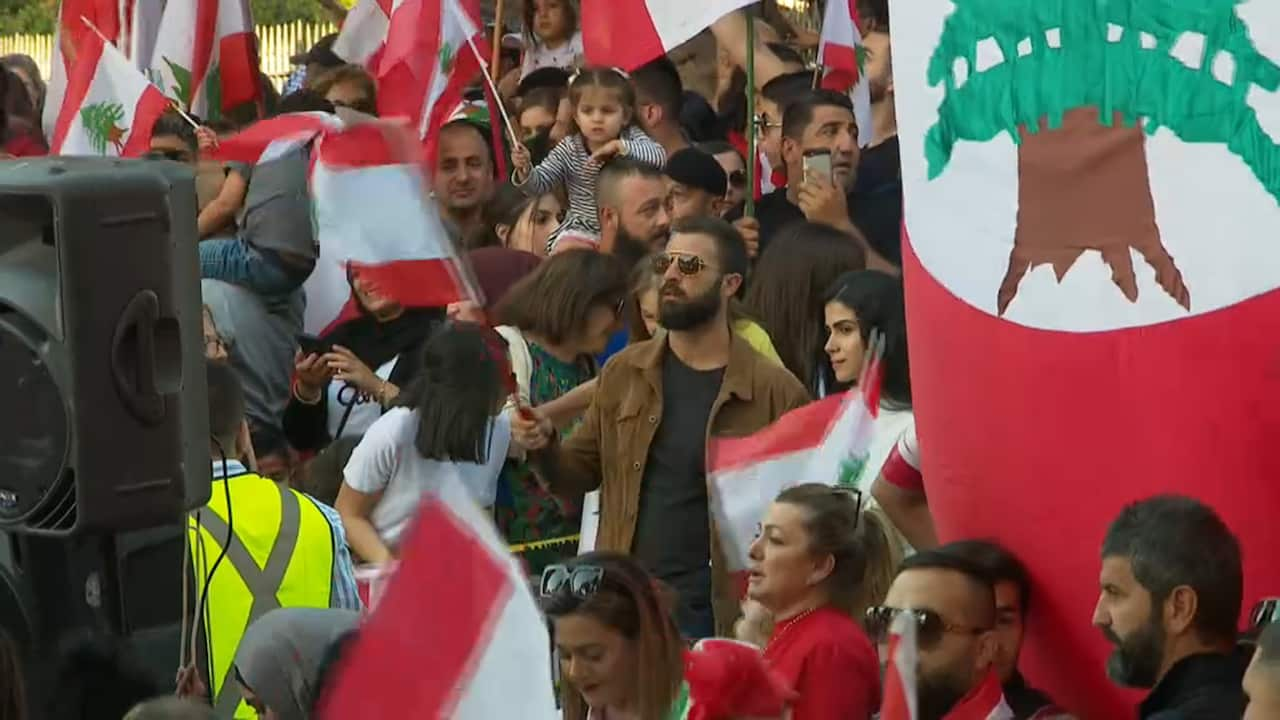 Buddy Zeta (31) also said that he was there to back “the revolution back home.”
Buddy Zeta (31) also said that he was there to back “the revolution back home.”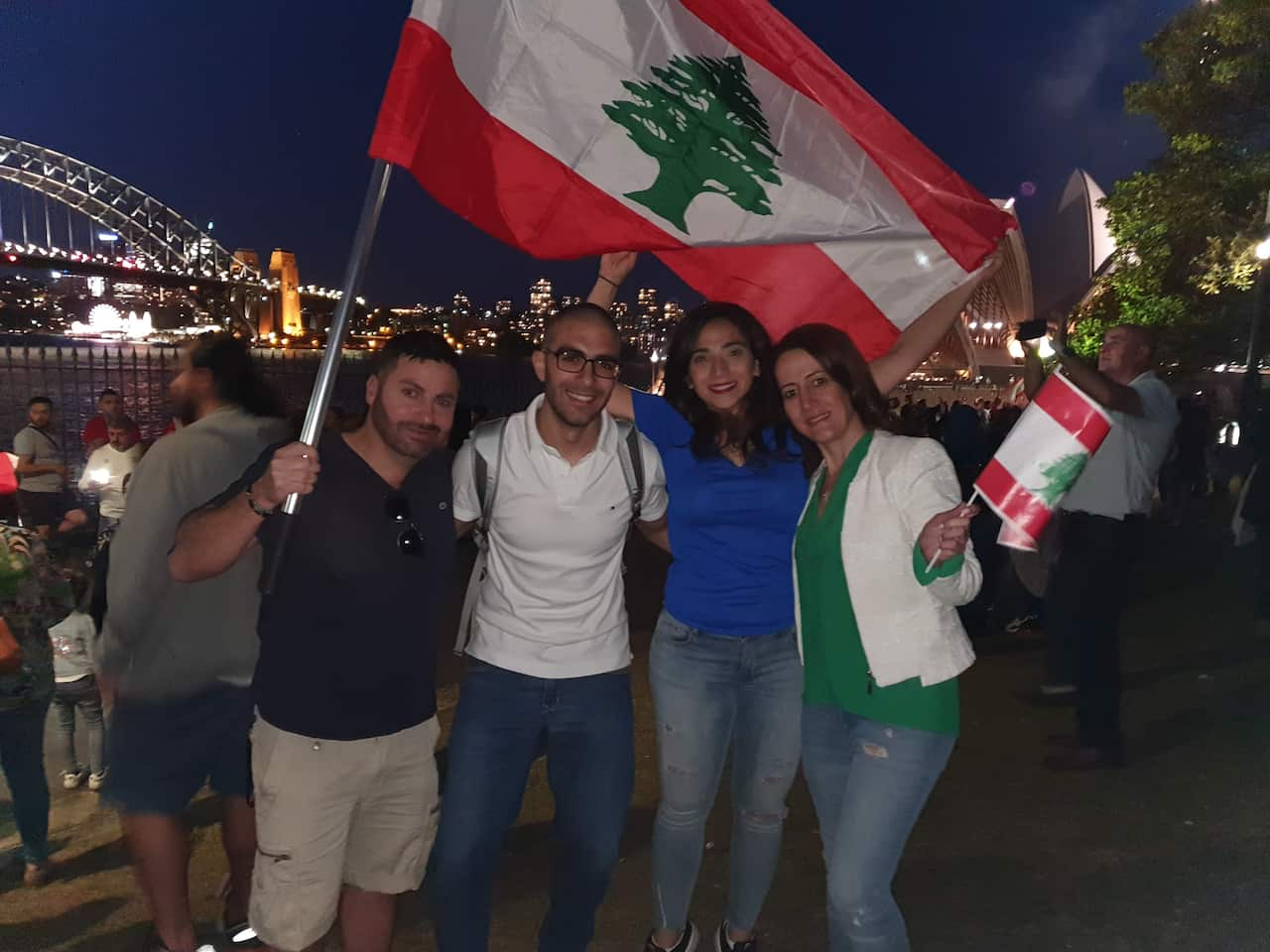 “This is a one of a kind revolution, which was not backed up or guided by a politician or a religious leader, so we are backing up our families and friends that are back home.”
“This is a one of a kind revolution, which was not backed up or guided by a politician or a religious leader, so we are backing up our families and friends that are back home.”

Source: Supplied

Buddy Zeta (2nd to left) with friends during the protest. Source: Supplied
Joyce (27) said that she left Lebanon when she was eight years old.
“We came to Australia for a better future. It is sad to see that there are people in the Lebanese government who think that they are above the law, and they can go and steal money from the people, and not put it towards infrastructure, health care (...). The government need to step down.”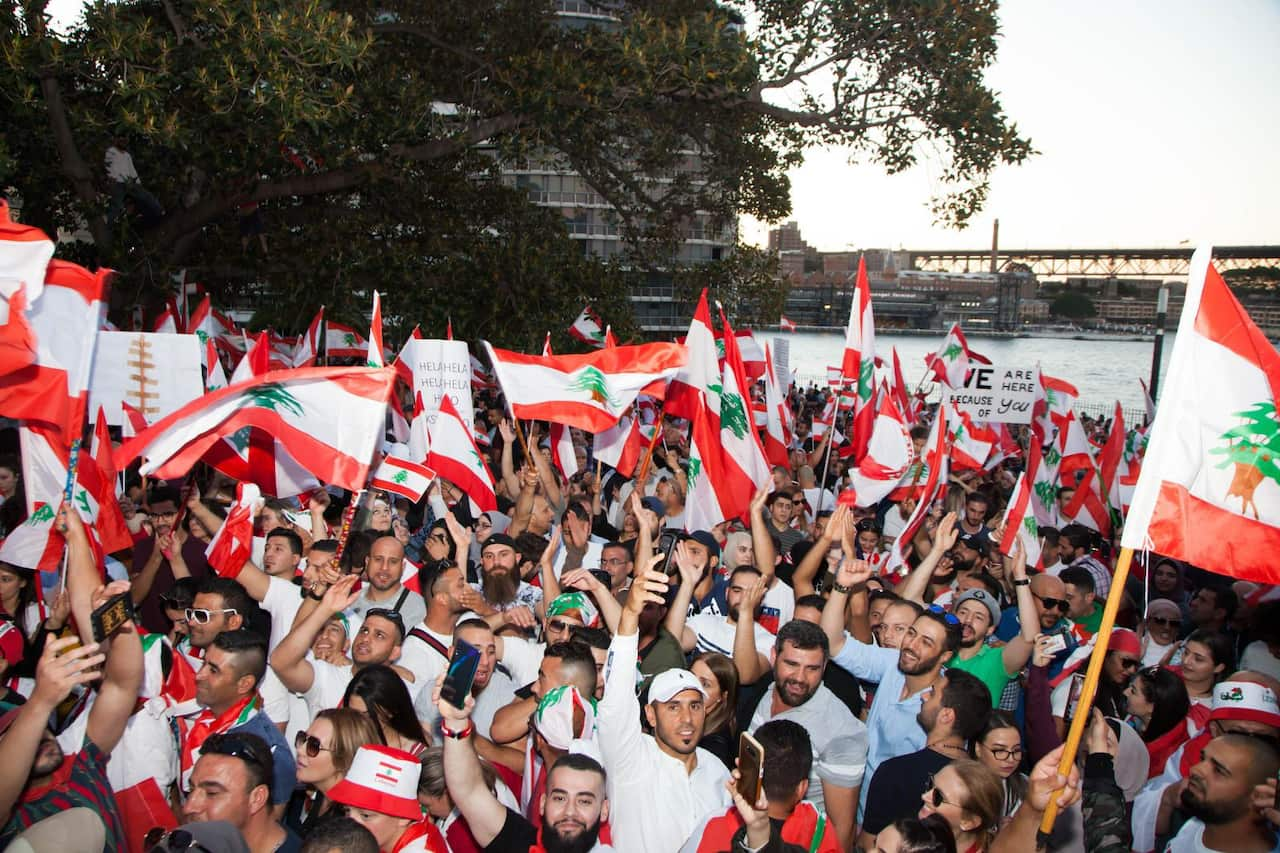 “You can see here today, you can feel the atmosphere, and you could really feel people's presence and their love for Lebanon, and their want for a change. We need people in the government who represent that.”
“You can see here today, you can feel the atmosphere, and you could really feel people's presence and their love for Lebanon, and their want for a change. We need people in the government who represent that.”

Thousands hold Lebanese flags in solidarity stand with Lebanese protests. Source: Supplied
Meanwhile, in Lebanon, tens of thousands of Lebanese protesters formed a 170-kilometre human chain across the country from it’s north in Tripoli, passing through the cap8ital, Beirut, reaching the south in Tyre - a symbolic act of joining hands to show the unprecedented cross-sectarian mobilisation.
What does WhatsApp have to do with the protests?
The protests were partly triggered by a proposal for a $6 monthly fee for Whatsapp voicecalls.
This came days after Lebanon was battling its worst wildfires in decades, hampered by the fact that Lebanon’s firefighting helicopters couldn’t be used because they needed maintenance. 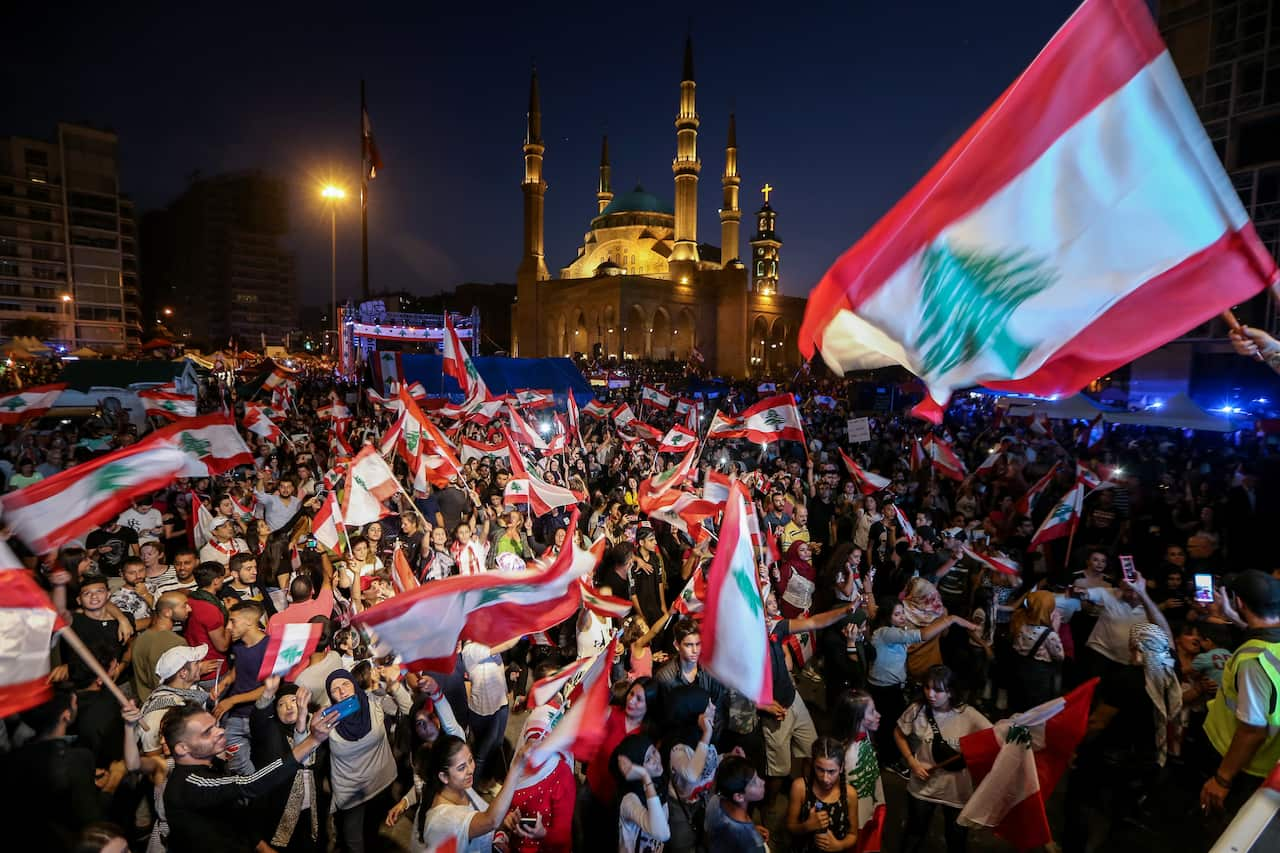 Lebanon has entered its 12th day of protests drawing people from all religious and political backgrounds. The protests have been mainly peaceful, although violence erupted in several areas.
Lebanon has entered its 12th day of protests drawing people from all religious and political backgrounds. The protests have been mainly peaceful, although violence erupted in several areas.

Thousands continued to protest on the second week of demonstrations against the government. Source: EPA
The government and President have responded to the protesters with sweeping reforms, including the approval of the 2020 budget with a deficit of 0.6% with no new taxes.
